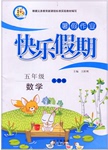题目内容
[ ]
B. effort
C. effect
D. affects

 一诺书业暑假作业快乐假期云南美术出版社系列答案
一诺书业暑假作业快乐假期云南美术出版社系列答案Today I felt very uncomfortable studying English as usual.My eyes were 36 and my mind was confused.I buried my head deep in the great pile of books.Many vocabulary words 37 my mind.As more and more entered,I 38 focus,and my 39 became crazy.The clock hands were pointing at twelve. I always 40 the time when I study.Without any fruitful results,I felt more 41 and tired.I 42 up and walked to the living room just to take a little break. 43 that would make me feel better.The street lamps looked like stars outside the window.A few scattered(分散的)branches 44 shadows on the French window.Something seemed more 45 and quiet than before.I walked to the 46 slowly,and let my face press against it, 47 very carefully…oh my God!!…It’s snow! It was very bright and covered up the whole 48 while I was studying English painfully, so white and so quiet.At this moment, I was so 49 that I felt like I might burst into tears.The snow was like a spring 50 into my heart,and my eyes were shining with it.All my pain and tiredness 51 at this moment,as the snow dropped into my heart.
I quickly became calm again as the excitement went away.I sat on the bed silently,and drew the 52 to one side to let the white house and white tree stay just beside my bed.I thought this must be a(n) 53 from God,because I liked snow so much. 54 I was weakest and most helpless in this world,nothing could inspire me but 55 .I should inspire myself from such a beautiful scene.
| A. closed | B. tired | C. shining | D. weeping |
| A. left | B. confused | C. filled | D. impressed |
| A. lost | B. got | C. realized | D. changed |
| A. thoughts | B. feeling | C. words | D. concept |
| A. waste | B. limit | C. remember | D. forget |
| A. flexible | B. guilty | C. unhappy | D. curious |
| A. stood | B. turned | C. checked | D. hurried |
| A. Sure | B. Maybe | C. Immediately | D. Always |
| A. shook | B. cast | C. like | D. printed |
| A.disappointing | B. frightening | C. bright | D. light |
| A. shadow | B. lamp | C. branch | D. window |
| A. looking | B. thinking | C. moving | D. cleaning |
| A. night | B. house | C. world | D. mind |
| A. disturbed | B. excited | C. surprised | D. bored |
| A. pouring | B. delivering | C. drilling | D. rising |
| A. occurred | B. arose | C. escaped | D. disappeared |
| A. bed | B. curtain | C. desk | D. book |
| A. anger | B. smile | C. gift | D. punishment |
| A. As usual | B. As a result | C. At last | D. At a time |
| A. snow | B. God | C. white | D. beauty |
One day Jack broke his mother’s mirror. When she saw the broken___41___ she cried. “Jack, you are too careless and because of that, father is going to punish you.”
“I’m too angry to ___42___ him a beating now,” said Jack’s father as he examined the broken mirror, “I’ll do it after supper.”
When supper was over, his father took ___43____ to the garden. “I’m going to ___44___ a branch that is just the right size,” he said. They looked everywhere but found___45___.
Then Jack had ___46___. “Father, I think your walking stick will be just __47____.”
“Yes, that’s a good idea. Now come along to my room and we’ll try it.”
Up in his room Jack’s father took ___48___ his coat. Jack was __49____. But to Jack’s great surprise, his father turned to his bed and hit it again and again with the walking stick. He hit it like this for a while and then stopped. “Well, I think that’s enough,” said his father. “You must be careful in future. You will be a good boy, won’t you?” Jack __50____ he would be and never forget it because it was such an unusual punishment.
| 【小题1】 |
|
|
| 【小题2】 |
|
| 【小题3】 |
|
| 【小题4】 |
|
| 【小题5】 |
|
| 【小题6】 |
|
| 【小题7】 |
|
| 【小题8】 |
|
| 【小题9】 |
|
| 【小题10】 |
|